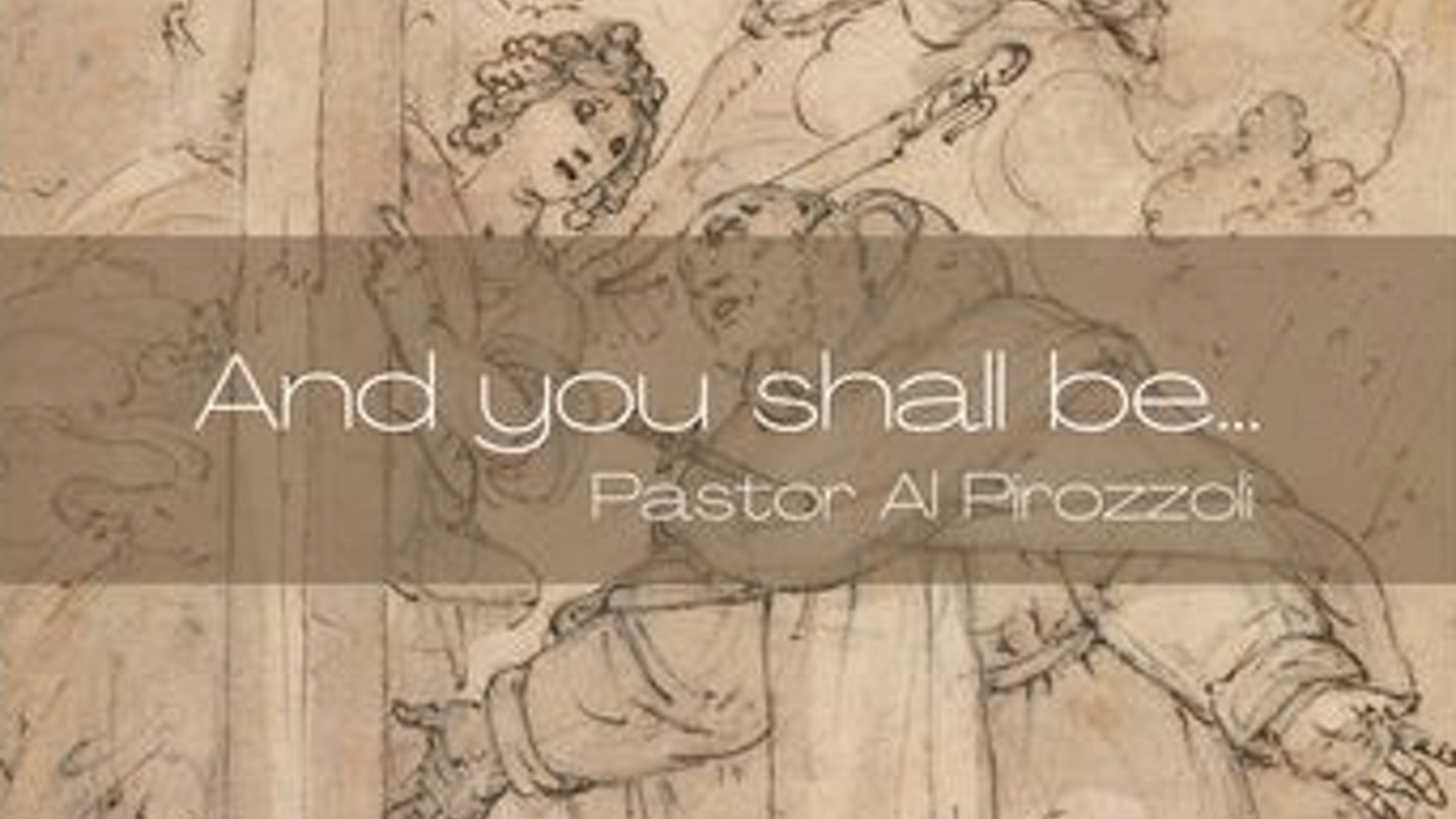And you shall be…
December 13, 2024
Al Pirozzoli
When Jesus began to prepare his departure from this earth, his disciples had a question for him. It would be the last question they would ever ask of him on earth. They had walked with Jesus, traveled with him, traveled out to minister in his name, they were in dangerous situations, often hurt, arrested, threatened and more. They had worked very hard and diligently. All the time in the back of their minds they expected Jesus to usher in a kingdom, his kingdom, and all would be made right. Based on their question we can see this was clearly on their minds. Afterall, they heard Jesus proclaim this kingdom often.
And he went throughout all Galilee, teaching in their synagogues and proclaiming the gospel of
the kingdom…(Matt 4:23)
And Jesus went throughout all the cities and villages, teaching in their synagogues and
proclaiming the gospel of the kingdom…(Mat 9:35)
Proclaiming the gospel of the Kingdom and healing every disease and every affliction among the
people. (Lk 17:21)
Additionally, they would have heard about the coming of the kingdom as youngsters in theirBible studies (the Old Testament). Plus they expected to hold places of honor in his kingdom. They rightly expected to know when Jesus was bringing the kingdom to the world. Jesus waspreparing for his ascension when the disciples asked him the question. Let us join the flow of the conversation:
In my former book, Theophilus, I wrote about all that Jesus began to do and to teach
2 until the day he was taken up to heaven, after giving instructions through the Holy Spirit to the apostles he had chosen.
3 After his suffering, he presented himself to them and gave many convincing proofs that he was alive. He appeared to them over a period of forty days and spoke about the kingdom of God.
4 On one occasion, while he was eating with them, he gave them this command: “Do not leave Jerusalem, but wait for the gift my Father promised, which you have heard me speak about.
5 For John baptized with [a] water, but in a few days you will be baptized with [b] the Holy Spirit.” The Question: Then they gathered around him and asked him, “Lord, are you at this time going to restore the kingdom to Israel?” (Acts 1) Jesus’ response: He said to them: “It is not for you to know the times or dates the Father has set by his own authority.
8 But you will receive power when the Holy Spirit comes on you; and you will be my witnesses in Jerusalem, and in all Judea and Samaria, and to the ends of the earth.”
9 After he said this, he was taken up before their very eyes, and a cloud hid him from their sight.
By paraphrase, Jesus said that his kingdom was invisible to the world system. And the disciples were charged to make his kingdom visible by going out into the world to demonstrate its reality and viability. Jesus used a particular word in his directive to the disciples. This word conveys the seriousness and intensity of the work ahead for the disciples. and you will be my witnesses in Jerusalem, and in all Judea and Samaria, and to the ends of the earth.” As it is occasionally with Bible translators, they tend to soften certain words, which in essence waters down what the scripture actually says. In the italicized verse above the word witness is actually Greek, for the word, martyr. If you read the above verse again replacing the word, you see how much more impactful it is. Martyr (Greek: μάρτυς, mártys, "witness", or μαρτυρία, marturia, stem μαρτυρ-, martyr-) is someone who suffers persecution and death for advocating, renouncing, or refusing to renounce or advocate, a religious belief or other cause as demanded by an external party. Martyr can also carry the connotation of a willingness to give oneself up, not only physically but in terms of intension, in terms of not being swayed from the truth of Christ when in danger of doing so. Also, not to be overlooked in verse 8, we see how they (and us) will endure the trials and dangers. The Holy Spirit is given to them/us. This is how they/us will be empowered to stand firm. We would be unable to endure based on our strength alone. The point of all this is that we are to bring the Gospel, at the very least, to our areas of influence and do so as a priority. After Jesus responded to the disciples’ question, he was taken up into heaven in their sight. In his glorious wisdom however, Jesus energized his followers by appearing to many after his resurrection including:
- Mary Magdalene (Mark 16:9, John 20:11-18)
- The women at the tomb (Matthew 28:9-10)
- Peter (Luke 24:34, 1Corinthians 15:5)
- Two disciples on the Emmaus Road (Mark 16:12, Luke 24:13-31)
- The apostles except Thomas (Mark 16:14, John 20:19-25)
- All the apostles with Thomas present (John 20:26-29)
- Seven disciples fishing (John 21:1-13)
- Eleven disciples in Galilee (Matthew 28:16-18)
- More than 500 disciples in one gathering (1Corinthians 15:6)
- James --location uncertain (1Corinthians 15:7)
- The apostles and various others for forty days (Acts 1:2-3)
- Those at the Mount of Olives (Luke 24:50-51, Acts 1:6-12)
- Stephen (Acts 7:55-56)
- Saul (Acts 9:3-6, 1Corinthians 15:8-9)
- John (Revelation 1:9-19)
So, here we are, called to teach and preach, to share the Good News, to heal and help, to comfort and bring peace, and in doing, make the Kingdom of God visible to a world that needs answers, solutions and a better way. In
Isaiah 60:1–2 and
66:22–23 God promised to build a kingdom. This is what Jesus ushered in (Luke 4:18–19). In this we have a key to understanding Jesus’ death and resurrection. Through his death, he suffered the judgment for sin so that he could bring the peace and justice of God’s kingdom to others. God compassionately holds back judgment and the full release of his kingdom to give people the opportunity to come to salvation through his son. “Do you not know that the Lord is not slow to fulfill his promise as some count slowness, but is patient toward you, not wishing that any should perish, but that all should reach repentance” (2 Peter 3:9).That is one of the most amazing verse ever!
Amen!


